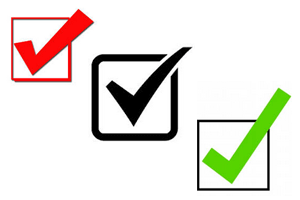Obviously, when we race we care about results. By results, I mean our name’s location on a sheet of paper which determines our state of satisfaction after each event. Or at least that’s how my relationship was with results before I knew better.
Forget the results
For sure I still care about the results, however, I read them differently now. It’s not the most important thing to me despite it giving a very quantitative value of my performance.
Why?
Because results are a statistic. They are raw data and nothing more. And I now find it very misleading to judge something so complex as athletic performance without considering broader context.
Focus on small specific goals
To measure your racing success or satisfaction more properly have three small goals for each race. At the end, put more weight on those than the result.
Here is an example of what kind of small goals you can set for yourself. Try to be quite specific, not general:
- Nailing all skins-on transitions (instead of “nailing all transitions”)
- Ski the long technical descent smoothly and under control (instead of “ski fast”)
- Don’t slip on the moguls climb (instead of “climb strong”)
- Eat a gel after 50 min (rather than “eat two gels”)
- Layer up and do a 15 min cool down right after finishing (rather than “do a cool down”)
Why only three goals?
Your racing mind will function much better if there is less to think about. And once you accomplish the goal in one race you will replace it with another small one in the next.
Why specific small goals?
The goal size and specificity allows you to focus on the it better because you know with absolute certainty what needs to be done to accomplish it. Also, it let’s you evaluate whether you nailed it or not much more easily than trying to figure out whether you skied fast or not.
Long time improvement
Once you come into peace with the idea that the end result is not as important you are setting up yourself for a long-term improvement. Results only by themselves are a double-edge sword, without reflecting the bigger picture.
And yes, it is true that for lot’s of these goals there won’t be an objective measure but that’s not a problem. You know very well whether you can check off a specific goal based on how you feel about executing it. If you don’t answer that honestly you are only cheating yourself. No progress.
Your next race
Figure out three specific things you want to improve at. Create a sequence of them for your next race. Now go and do your best to check them off.
What do you think, is this gonna work for you?
Share your thoughts in the comments below.


Tyler Beck says
Hey Stan,
This post is incredibly pertinent to me right now. I just finished my fifth skimo race in the amateur division. My first race took me 153 minutes to finish a 3500 foot course. This year I was able to do it in 105. Admittedly, i am still in the rookie phase of racing and still focusing on fitness as my main course of improvement. I came in 4th in my last race despite finishing in a “winning” time historically for the course. This felt like a punch in the face – to set a goal of shaving 15 minutes off last years time – hit the goal but still not be on the podium.
But, it seems very unwise that ranking be your motivator and goal as you wrote above. I like your simple goals of transitions, fueling and technique. For me, one helpful metric is climbing speed (feet/min) over the race. My climbing speed has grown incrementally over the last few years and it is my goal to grow it til i can be competitive with some excellent athletes. If i have done the course before it also nice to have specific minute markers for certain checkpoints…these metrics seem to be helpful to me for measuring longterm growth.
I would love hear more from you on this topic.